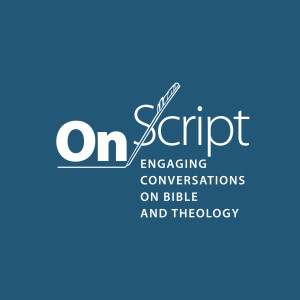
Episode: Scott has a riveting biography, from growing up as a missionary kid in South America to entering the Goth and underground music scene to thinking about the effects of horrors and traumas on the body of Christ. You won’t want to miss Scott’s insights here, as he discusses his book God of All Comfort.
Guest: Scott is an Anglican theologian, historian and moral philosopher, and an Associate Professor at Ridley College (in Melbourne, Australia). He teaches graduate and undergraduate courses in theology, early Christianity, ethics and philosophy of religion. He also supervises research degrees including Ph.Ds. His previous books include one on the Trinity (Trinitarian Self and Salvation), and another (with Greg Forbes) on the depiction of women in Luke-Acts (Raised from Obscurity), Trinity Without Hierarchy: Reclaiming Nicene Orthodoxy in Evangelical Theology (Kregel Academic) and with Sean McDonough, A Time for Sorrow: Recovering the Practice of Lament in the Life of the Church, (Hendrickson). He is also the co-editor (with Mike Bird) of the Cambridge Companion to the Apostolic Fathers (2020).
Book: (from the publisher) “How does God respond to trauma in a world full of horrors? Beyond their physical and emotional toll, the horrors of this world raise difficult theological and existential questions. Where is God in the darkest moments of the human experience? Is there any hope for recovery from the trauma generated by these horrors? There are no easy answers to these questions. In God of All Comfort, Scott Harrower addresses these questions head on. Using the Gospel of Matthew as a backdrop, he argues for a Trinitarian approach to horrors, showing how God—in his triune nature—reveals himself to those who have experienced trauma. He explores the many ways God relates restoratively with humanity, showing how God’s light shines through the darkness of trauma.”
OnScript Quip: (from Dru’s blurb on the back of the book) “Scott Harrower skillfully brings the pressing issue of trauma and horror into the realms of historic, Trinitarian, and creedal life of the church today. By leading us through ‘horror-attuned readings’ of the Gospels, he helps us to avoid the pitfalls of neglecting trauma as the present lens through which many of us read Scripture, but also without reducing trauma to the only lens. I initially thought this book would be an interesting read. But Harrower made me quickly realize how necessary this discussion is to understanding Scripture, theology, and our culture soaked in misappropriations of horror. Scripture as well as the church past and present have a horror-redeeming function, and Harrower aptly helps us navigate it.”
More Episodes
 2024-09-18
2024-09-18
 2024-09-02
2024-09-02
 2024-08-05
2024-08-05
 2024-06-10
2024-06-10
 2024-05-08
2024-05-08
 2024-04-30
2024-04-30
 2024-04-16
2024-04-16
Create your
podcast in
minutes
- Full-featured podcast site
- Unlimited storage and bandwidth
- Comprehensive podcast stats
- Distribute to Apple Podcasts, Spotify, and more
- Make money with your podcast
It is Free
- Privacy Policy
- Cookie Policy
- Terms of Use
- Consent Preferences
- Copyright © 2015-2024 Podbean.com






